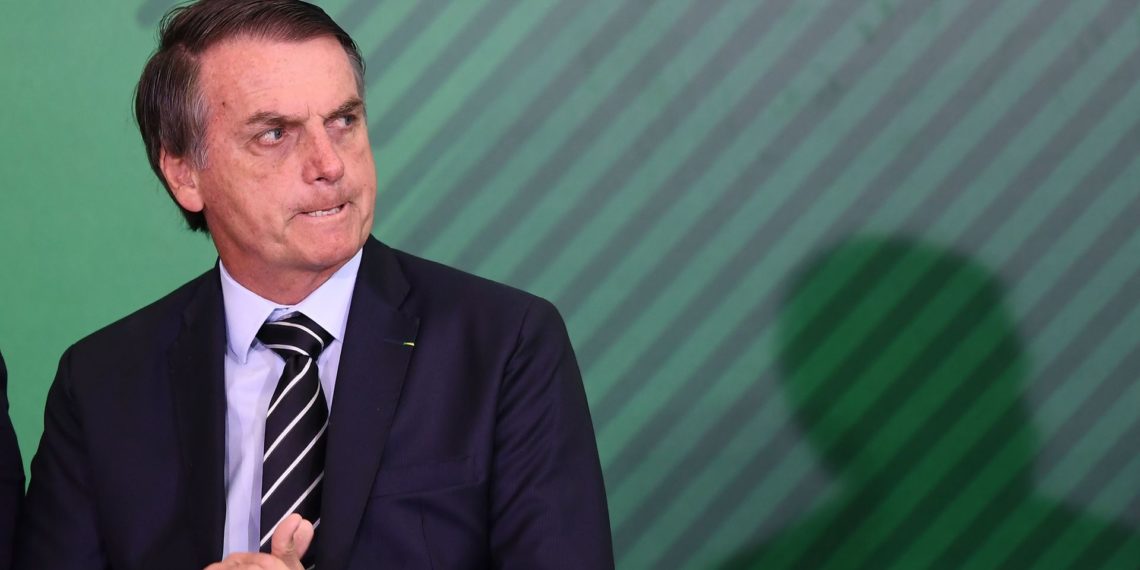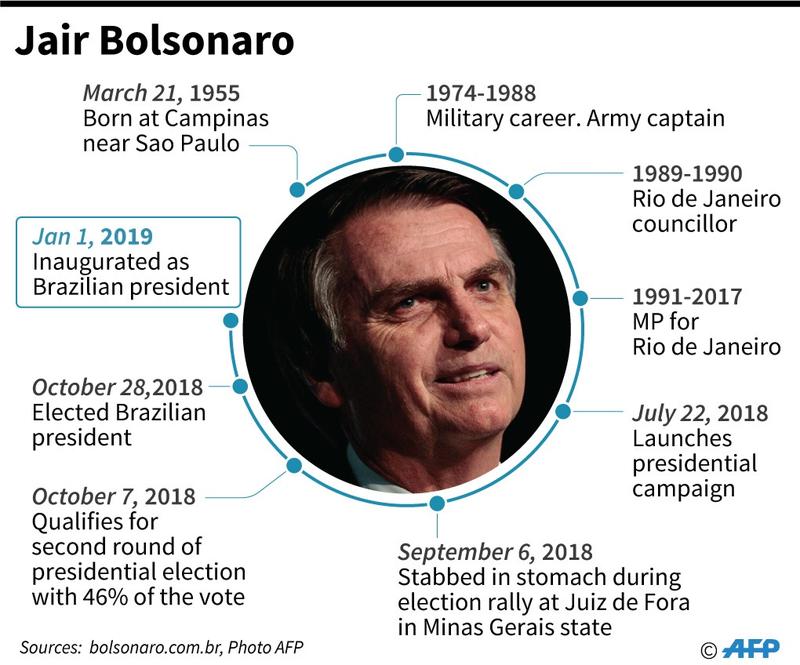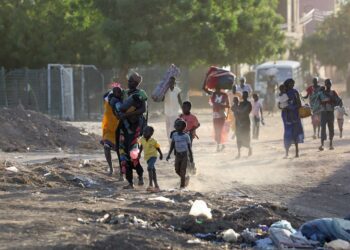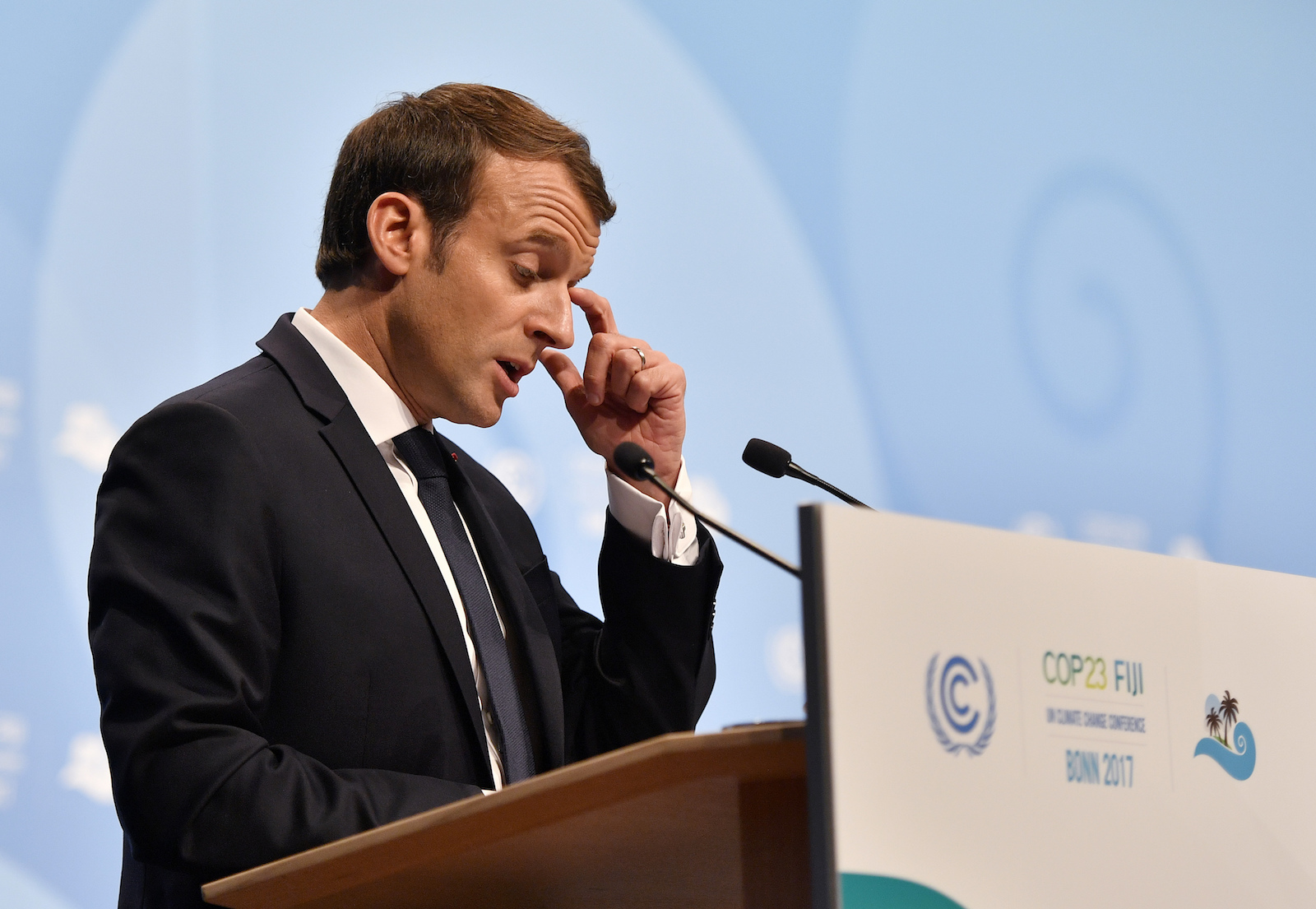Fernanda is a gay woman who lives with her long-term partner in Brazil. She is one of my closest friends and has been since a couple of years after I moved to Brazil in 2003. We have often spoken about the changes in her country since President Dilma Rousseff’s impeachment in 2016.
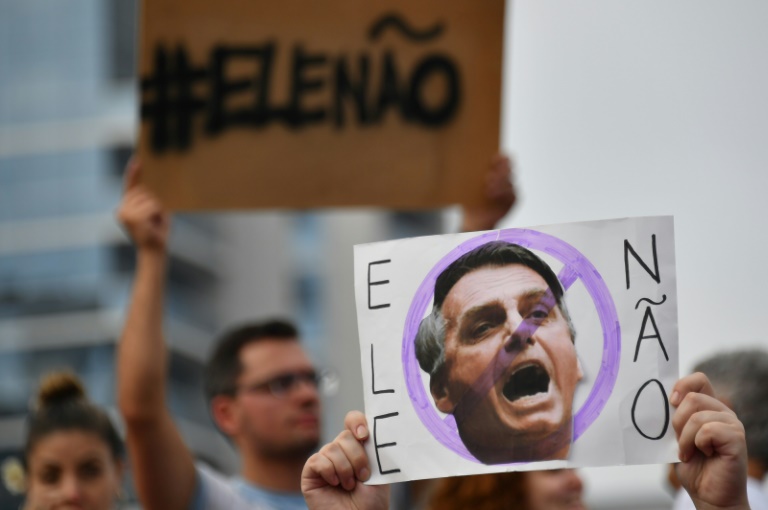
Fernanda (not her real name) has been on the frontline of feminist and LGBT activism in her city. She and her partner became active militants in the #EleNao (#NotHim) movement, organized by women who dreaded the idea of Jair Bolsonaro as president. They handed out pamphlets and set out to engage in civil conversation with his supporters at bus stops and on street corners.
Now, with Bolsonaro’s election, Fernanda and her partner have to reconcile their love, fear, safety, and future with a society that increasingly rejects not only their right to be together but their right to exist. They wonder whether they should get married quickly, as have many other gay couples, to ensure this right before it disappears. Should they stay in Brazil and fight what seems to be a losing battle? Or should they go into exile for the sake of safety and leave the cause behind? And if they were to leave, where could they go and how?
These are questions that I have never had to ask myself and, reader, I hope the same is true for you. But while you might not face such a daunting reality right now, Brazil’s sudden turn away from human rights and towards outright oppression of previously protected groups should serve as a warning to us all – straight or gay, black or white, indigenous or migrant.
Human Rights Crisis in Brazil
How human rights are suppressed in the name of an evangelical Christian-supported authoritarian democracy in Brazil announces what we might expect in other liberal, democratic nations in the near future.
This opinion piece is not about politics, not because I don’t have a political view, but because we do not have to be of the same party to agree that Brazil is already in the midst of a human rights crisis that is only likely to get worse. Several communities are at particularly high risk: the LGBT population, indigenous peoples, Afro-Brazilians (particularly those descended from runaway slave communities who live on protected lands or in favelas), and women.
In October, Bolsonaro won Brazil’s presidency, despite strong opposition mobilized against his racist, homophobic, and misogynist comments. Support for Bolsonaro is inconsistent throughout the country, with overall greater rejection in the Northeast.
His supporters, often referred to as Bolsominions, are a mixed bag. They range from conservative evangelical Christians that are convinced that Bolsonaro will bring God back to a country overcome by the so-called “ideology of gender” to people who want to own guns or oppose to the Workers’ Party and its corruption scandals.
Others unashamedly crave a return to military dictatorship, and the order and peace they expect would come with it. Those who voted for him did not necessarily agree with his entire platform. According to surveys and exit polls, Bolsonaro also drew votes from the conservative gay sector, and (as with Donald J. Trump) women.
Social and Political Climate
But many, particularly the indigenous, the LGBT population, and poor people of color have a very real reason to fear for their physical and social well-being in Brazil’s current social and political climate. It would be an error to attribute this to Bolsonaro’s election.
The Grupo Gay da Bahia, which has collected statistics on violence against the LGBT population in Brazil for decades, noted a 30 percent increase in attacks against LGBT individuals in 2017 compared to 2016. Police killings have been climbing for years, reaching 6.7 percent of all homicides in the state of Rio de Janeiro in 2017.
And Brazil’s indigenous population already suffered increasing violence against it under the previous administration. This climate helped usher Bolsonaro into office and will likely continue, with or without him.
Changes Under Bolsonaro
Bolsonaro has only been in office since January 1 but has already brought about devastating changes. One of his first acts as president was to sign a provisional measure that excludes LGBT rights from being considered by a new human rights ministry.
To the Ministry of Women, Family, and Human Rights, he appointed an evangelical pastor who (among other bizarre statements) claims to hold a master’s in education that she granted herself through lone biblical study and promises that she will make sure that boys will wear blue and we can call girls princesses again.
To the Ministry of the Environment, he appointed a man who has referred to deforestation as inevitable and who enjoys the support of the agricultural sector, causing some to refer to the institution as the “Antiministry of the Environment.”
Bolsonaro has signed a decree making it easier to obtain a gun and approved a provisional measure allowing for governmental monitoring of activists and NGOs. Tragically, he also transferred the National Foundation for the Indian (responsible for policies relating to indigenous peoples) from the Ministry of Justice to the Ministry of Agriculture, where it will now be influenced (if not controlled) by multinational agricultural corporations.
Minister of Justice and Public Security Sergio Moro has put forth an anti-crime package that would allow the police to kill out of “excusable fear, surprise, or violent emotion,” in essence giving the police carte blanche to shoot to kill.
Brazil’s only openly gay legislator, Jean Wyllys, has left the country under fear of assassination by the same militia group that last year killed gay Rio city councilwoman Marielle Franco, a champion for the favela residents in Rio de Janeiro. Bolsonaro’s son Flavio, a senator-elect, has been accused of having ties to the militia group that organized the murder.
Spreading Across Liberal Democracies
You do not have to be gay, indigenous, poor, or Brazilian for this to affect you. This rolling back of human rights in the name of order and Christian authoritarian ideals is spreading across liberal democracies. It comes as a package of authoritarianism with a strong evangelical Christian justification, loose democratic principles, selective justice, sympathy for torture and extrajudicial killing, indifference to environmental crises, institutional racism and misogyny, loosening of gun restrictions, institutionalized homophobia and transphobia, and irresponsible corporate freedom.
While we find these problems elsewhere, in Brazil they are being taken to their extreme limits. As Professor Greg Grandin showed in his book Empire’s Workshop: Latin America, the United States, and the Rise of the New Imperialism, policies carried out in Latin America can be perfected and transferred to another part of the world.
You might not be Brazilian, but you should be concerned about what is unfolding in Latin America’s largest country that has a long history as ally to the U.S. and several European nations.
The last time that I spoke with Fernanda, I mentioned that I was writing this opinion piece. I asked her if she would read it for me.
“Yes,” she said, “but I haven’t been paying attention anymore as a matter of survival. It’s all so sad. Sometimes we think of leaving, but for now, we are avoiding the topic altogether.”
Fernanda is a creative, loving, funny, intelligent, and dedicated individual. When talking with her over a beer, you would not think “here lies a threat to the nation.” But she and her partner are silently struggling between two types of survival: psychological well-being and physical survival in a society that increasingly rejects their right to exist.
They could come for you too. Pay attention. Act now.
Disclaimer: The views and opinions expressed here are those of the author and do not necessarily reflect the editorial position of The Globe Post.

